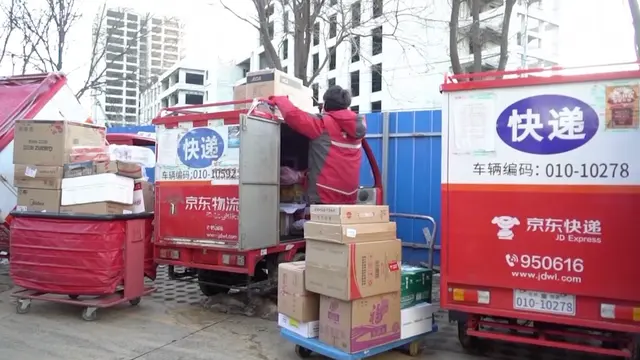03:31
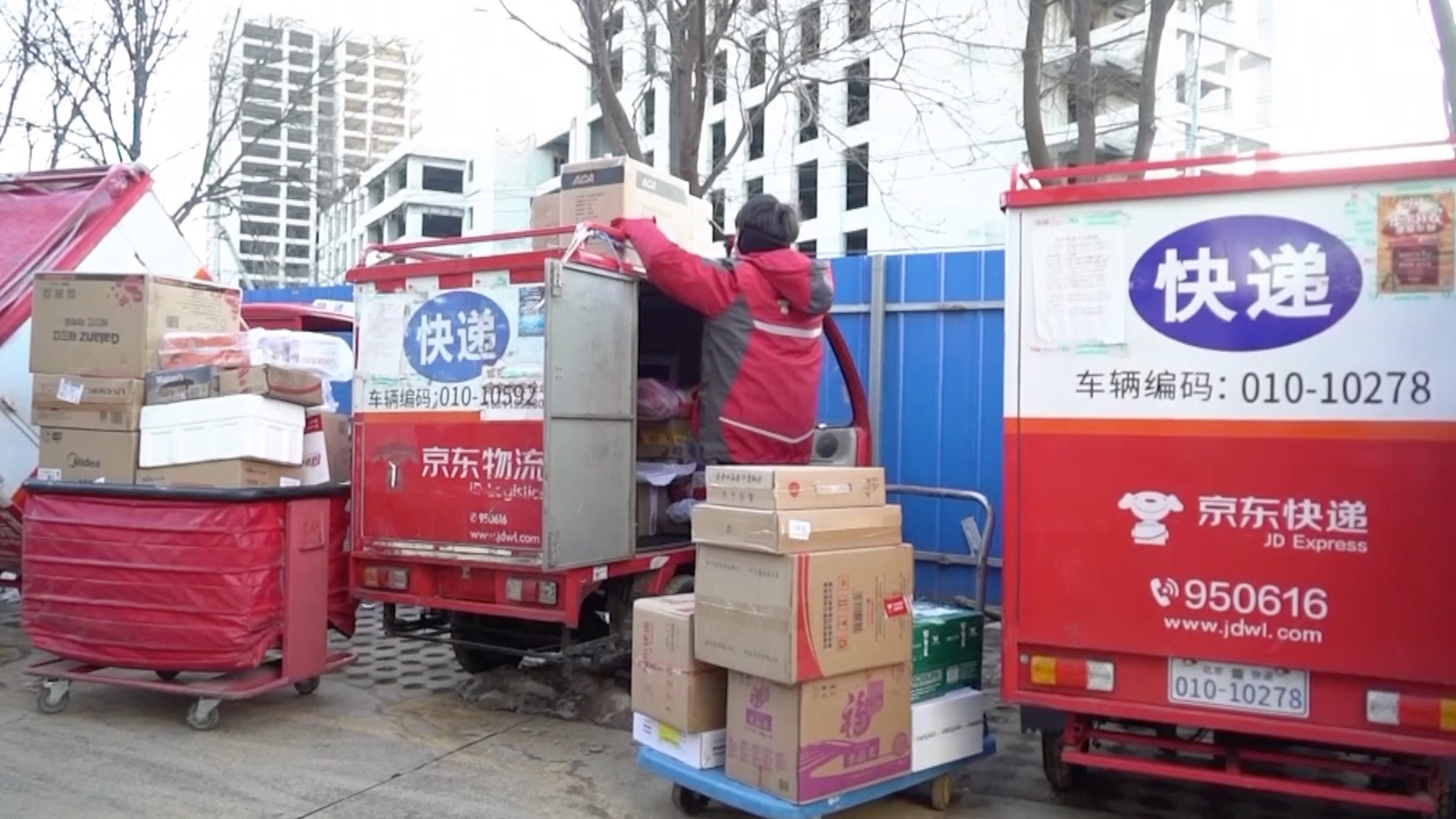
The Coronavirus outbreak may have disrupted global supply chains and dealt a big blow to many economies, especially that of China's. However, opportunities always come out of crises. The advice of reducing body contact to fight against coronavirus has led Chinese to embrace a growing number of business innovations, like the rise of O2O (online-to-offline commerce) business, online-education, cloud service, 5G technology. CGTN reporter Yang Shanshan analyzes some of these new trends brought by Covid-19.
The Rise of O2O Business:
Online shopping is not new in China. The outbreak of SARS in 2003 helped the internet giant Alibaba and JD.com achieve success when people were advised to stay indoors to reduce infection. After 17 years, those online business started to combine offline virtual stores to improve shopping experience. These businesses are called O2O business, like Hema Fresh, Daily Fresh. For a long time, investors were worried that O2O business could not gain profits because their business model couldn't reduce costs from the virtual store and delivery service. However, the outbreak of coronavirus gave these business a strong boost. According to statistics from Kantar, sales figures for O2O businesses, like JD's Getting Home and Daily Fresh, increased by nearly four times in February.
Even older consumers who prefer traditional shopping started using mobile apps to buy food and medicine. One of the reasons is the contactless delivery provided by the O2O business. Many business installed shelves outside of residential buildings to reduce human contact in delivery.
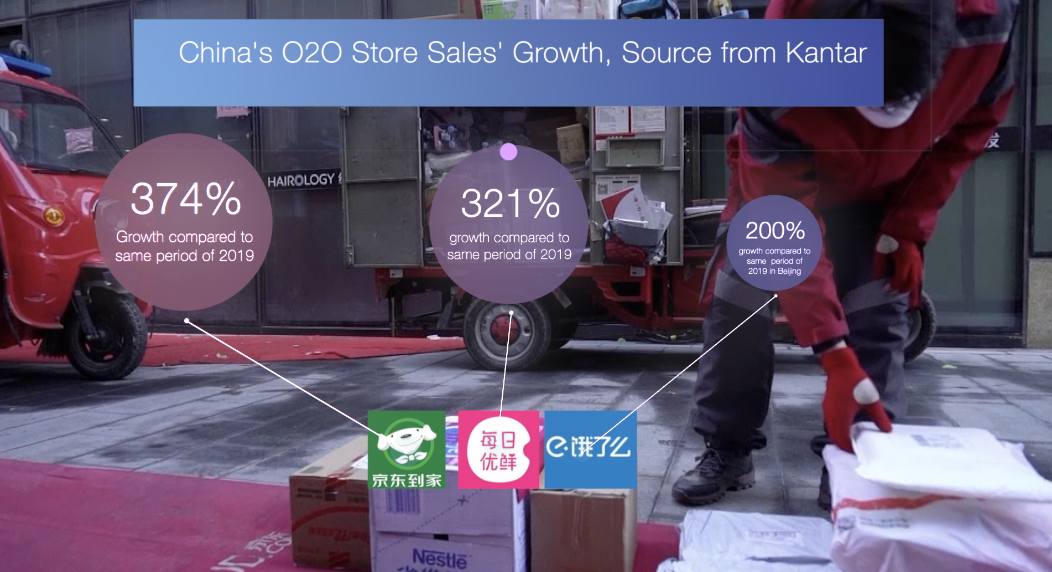
CGTN graphic
"We used to send packages to clients' homes, now in order to protect them from Covid-19 infection, we put packages just outside their residential complexes. We now encourage clients to use this method," said Li Hu , a JD.com delivery worker.
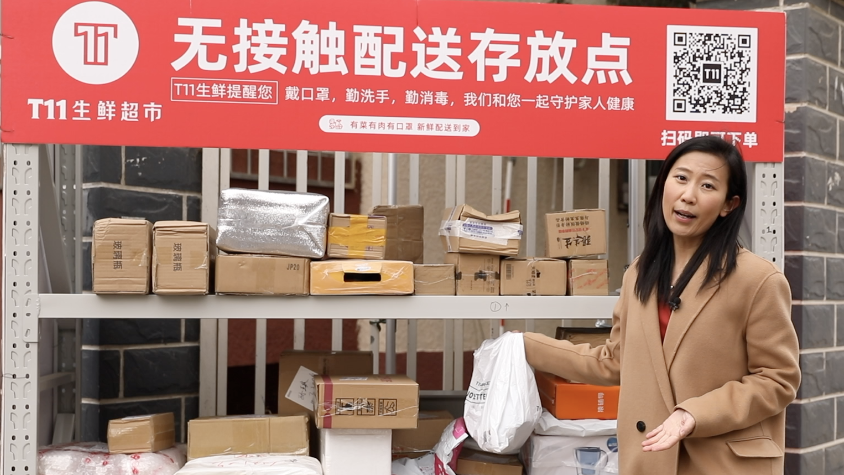
CGTN
Coronavirus helps O2O business gain new clients and they could improve their business model after the outbreak.
Opportunities for Games and Online-Education Apps
When you stay indoors for such a long time, you probably have to figure out how to spend your time. In February, app downloads have seen a 40 percent jump on a weekly basis compared to the same period of last year. Nearly 222 million downloads have been done in China's Apple store. Gaming, education and entertainment apps are among the most popular downloads, according to the statistics from App Annie. Though game apps ate at the top, the biggest winner is online-education, as nearly all schools across China had to postpone the beginning of the spring semester and students are required to take online courses.
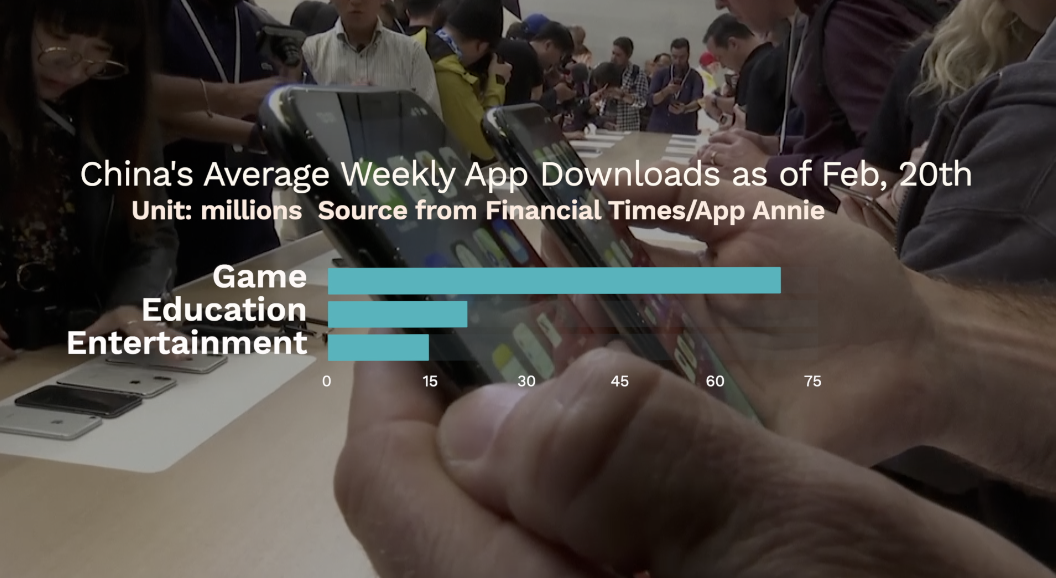
CGTN graphic
Cloud service is more popular
Working from home in China is not a normal practice, as most bosses prefer to have employees work in the office. But Covid-19 changed this. Companies now encourage employees to work from home and their work can be sent through a cloud service.
At the Shanghai Stock Exchange, one company is already listed through the cloud service, with no people on-site.And students from a Xiamen choir record songs via cloud to support Wuhan people.

Screenshot from People's Daily Social Media
The big test for 5G technology
Finally, this outbreak has put 5G technology to the test.Two hospitals in Wuhan are equipped with 5G network. This means in the future it could offer long distance-diagnoses to patients and even AI robot-assisted operations.
We still don't know how long this outbreak will last, but some changes in business may alter our economic structure and lifestyles in the future.
 简体中文
简体中文

